Text
A profession in data science is a sensible choice.
Hello to all of you. We talked about whether a career in data science would be a good fit today.Data is ubiquitous in the modern digital era, and being able to analyze and utilize information effectively is a valuable talent. The field of data science, which deals with the analysis and interpretation of complicated data, is becoming more and more in demand. Is it, nevertheless, the best decision for you? Let's examine the reasons data science is a promising subject, the competencies you'll require, and the prospects for data scientists in the future.

The Appeal of Data Science
High Demand and Attractive Salaries
One of the main reasons data science is such a popular career choice is the high demand for skilled professionals. Companies across various industries, from tech giants like Google and Facebook to finance, healthcare, and even retail, need data scientists to help them make informed decisions. This high demand translates into attractive salaries. According to recent surveys, the average salary for a data scientist in the United States is around $120,000 per year, with the potential for even higher earnings as you gain experience and expertise.
Diverse Opportunities
Data science offers a wide range of opportunities. Whether you're interested in working for a startup or a multinational corporation, in fields like healthcare, marketing, finance, or even sports, data science skills are transferable and valuable. This diversity means you can find a niche that aligns with your passions and interests, making for a fulfilling career.
Skills You Need to Succeed
Technical Skills
To thrive in data science, you need a strong foundation of technical skills. This includes proficiency in programming languages like Python and R, which are essential for data manipulation and analysis. Knowledge of SQL is also crucial for managing and querying databases. Additionally, familiarity with tools like Hadoop, Spark, and Tableau can give you an edge in handling and visualizing large datasets.
Analytical and critical thinking
Beyond technical skills, analytical and critical thinking are vital. As a data scientist, you’ll need to interpret data, identify patterns, and draw meaningful insights. This requires a curious mind and the ability to approach problems from different angles. Strong statistical knowledge is also important to validate your findings and ensure they are statistically significant.
Proficiency in Communication
It's critical to be able to articulate your findings clearly. Data scientists frequently collaborate with stakeholders that might lack technical expertise. Consequently, it's a useful talent to be able to convert intricate data insights into concise, doable recommendations. This can entail producing papers, putting together visual aids, and clearly communicating your research results to a broad audience.
Data Science's Future
Sustained Development and Evolution
Data science appears to have a bright future. There will likely be a greater need for qualified data scientists as more businesses come to understand the benefits of making decisions based on data. As new tools and technology advance, additional chances for creativity and specialization will arise.
Interdisciplinary Applications
Data science is increasingly being applied in interdisciplinary contexts. For instance, in healthcare, data scientists are working on personalized medicine and predictive analytics to improve patient outcomes. In environmental science, they’re helping to model climate change and develop sustainable solutions. This interdisciplinary approach means data scientists can have a significant impact on various critical global issues.
Lifelong Learning
Finally, a career in data science is perfect for those who love to learn. The field is always changing, with new techniques and technologies emerging regularly. Continuous learning is part of the job, whether it’s through formal education, online courses, or self-study. This constant evolution keeps the work exciting and ensures that data scientists are always at the forefront of innovation.

In conclusion, data science is a rewarding and dynamic career choice. With high demand, attractive salaries, and diverse opportunities, it’s an excellent field for those with the right mix of technical, analytical, and communication skills. As the world continues to generate more data, the role of data scientists will only become more crucial, making it a promising career path for the future. If you enjoy solving complex problems and are eager to learn continuously, data science might just be the perfect career for you.
0 notes
Text
An Introduction to Data Science Research
The study of data science provides an exciting opportunity to uncover trends, patterns, and insights in data. But entering this field necessitates learning fundamental abilities and taking a methodical approach. Let's explore the knowledge and skills you will need to start your data science research adventure.

Basic Competencies:
1. Statistics Fundamentals: The foundation of data science is statistics. It is essential to comprehend ideas like probability, regression analysis, and hypothesis testing. It supports you in interpreting the facts and coming to relevant conclusions. Data management and analysis are made easier by learning statistical tools like R or Python packages like NumPy and Pandas.
2. Programming Proficiency: Knowing how to program in a language like R or Python is essential. In data science, these languages are commonly used for modeling, data analysis, and data manipulation.
3. Data Wrangling and Preprocessing: Before analysis, raw data frequently needs to be cleaned up and given some pretreatment. Acquire skills to manage noisy data, outliers, and missing values. To get data ready for analysis, be familiar with scaling, transformation, and normalization techniques. By doing this, you can be confident that the data is accurate and ready for analysis.
4. Exploratory Data Analysis (EDA): In order to comprehend the properties of data, EDA entails analyzing and visualizing the data. It facilitates the discovery of correlations, patterns, and trends in the data. Visual exploration of data distributions, relationships, and anomalies is made easier with the use of visualization tools and techniques.
How to start a data science research project:
1. Define research goals:
Clearly state the issues or research questions that you hope to use data science to solve. It's critical to clearly define goals and expected results. This phase determines the course of your research and directs your next steps.
2. Literature Review:
To comprehend previous studies, approaches, and conclusions in your field of study, undertake a comprehensive literature review. Determine any gaps or areas in which you can offer fresh perspectives or methods. A thorough comprehension of the current literature guides the conception and methodology of your study.
3. Data Preparation and Collection:
Compile pertinent datasets that support the goals of your study. To guarantee the quality and appropriateness of the data for analysis, clean, preprocess, and investigate it. This first stage determines the course of your research and directs the next steps.To guarantee that the data is of high quality and appropriate for analysis, clean, preprocess, and investigate it.
4. Analysis and Experimentation:
To test theories or look for trends in the data, create analyses or experiments. Use the right statistical or machine learning methods to examine the data and extract meaningful information. Iterative processes like experimentation and analysis necessitate close observation and result interpretation.

Researching data science requires an organized approach and the acquisition of fundamental skills in programming, statistics, and data processing. You can start your exciting research career in the exciting field of data science by learning these fundamentals and following the suggested procedures.
I appreciate you taking the time to read this, and I hope your day is fantastic.
0 notes
Text
The Rapid Rise of Data Science: Exploring Its Market Growth
With the proliferation of information and the rapid advancement of technology in today's digital world, the area of data science is seeing exponential expansion in the market. In layman's words, let's examine the elements driving the data science boom.

1. Increasing Data Availability:
The enormous amount of data generated daily is one of the main causes of data science's explosive growth in popularity. We are continuously producing enormous volumes of data due to the introduction of smartphones, social media, IoT devices, and other digital technologies. This data is a treasure trove of important insights just waiting to be discovered. By giving organizations the means to discern valuable patterns and trends from this abundance of data, data science gives them an advantage over competitors and allows them to make well-informed decisions.
2. Advancements in Technology:
The development of data science has been greatly expedited by technological advancements, especially in the areas of processing power and storage. Nowadays, enormous datasets can be processed and analyzed in a fraction of the time it would have taken a few years ago, thanks to strong algorithms and sophisticated machine learning models.
3. Demand for Insight-Driven Decision Making:
Data-driven decision-making has become crucial for staying ahead of the curve in the fast-paced business world of today. Businesses from all sectors understand how important it is to use data to understand consumer behavior, industry trends, and operational effectiveness. With the use of data science, businesses may fully utilize their data assets, resulting in better strategic planning, more focused marketing initiatives, and streamlined operations.
4. Diverse Uses in Different Industries:
A growing number of industries, including healthcare, banking, retail, and transportation, are embracing data science, which has its roots in technology. Almost every sector might profit from the insights gathered through data analysis. In the field of medicine, predictive analytics has uses that can improve treatment outcomes and help determine patient risk factors. For automated trading, risk assessment, and fraud detection, financial institutions use data science. Retailers can provide clients with a more personalized buying experience by utilizing recommendation engines. Because of their broad applicability and business needs, data science applications are appealing to a wide range of users.

In conclusion, a number of reasons have come together to cause the market for data science to grow rapidly. These factors include the abundance of data, the development of technology, the demand for data-driven decision-making, and the wide range of applications that data science has in different industries. In the upcoming years, there will likely be an even greater demand for qualified data scientists as businesses continue to realize the strategic value of data science in fostering innovation and accomplishing goals. A more data-driven future is awaiting us if we embrace data science capabilities, which will also open up new doors for efficiency and growth.I'm grateful that you shared your precious time with me. Have a wonderful day.
0 notes
Text
Explore the relationship between data science and IT.
The boundaries between many disciplines sometimes blur in the fast-paced world of technology, leaving people confused about what specific disciplines actually entail. Whether data science belongs under the purview of information technology (IT) is one such point of contention. Let's examine the connection between data science and IT and try to solve this puzzle.
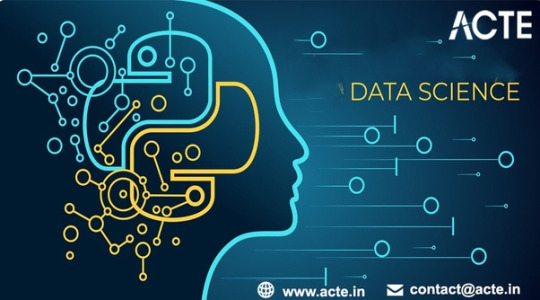
IT and Data Science Definitions
It's important to comprehend the fundamental ideas behind both data science and IT before getting into the discussion.
Data science is the application of numerous approaches, such as statistics, machine learning, and data mining, to extract knowledge and insights from data. It entails examining huge datasets to find patterns, trends, and correlations that can guide choices and spur innovation in a variety of sectors.
Understanding the distinction
IT and data science both deal with technology, but they have different goals and need different skill sets.
Focus of Data Science:
The primary goal of data science is to analyze and interpret data in order to produce insights that can be put into practice. To extract valuable information from datasets, data scientists employ sophisticated statistical and machine learning techniques in conjunction with computer languages such as Python and R. Their proficiency is in deciphering mathematical models, data structures, and algorithms to solve challenging issues and produce desired commercial results.
IT Focus:
In contrast, IT specialists are in charge of overseeing and preserving an organization's technological infrastructure. This covers jobs including software development, database management, network administration, and cybersecurity.
Collaboration and integration
Despite being separate fields, data science and IT frequently interact and work together to accomplish shared objectives.
Data science integration with IT:
Over the past few years, data science integration with IT operations has grown. IT departments use machine learning algorithms and data analytics to improve system performance, identify anomalies in network traffic, and strengthen cybersecurity. IT workers may make well-informed decisions about risk management, infrastructure upgrades, and resource allocation with the use of data-driven insights.
Collaboration between IT experts and data scientists:
Successful data efforts depend on collaboration between data scientists and IT experts. IT infrastructure is necessary for data scientists to safely access and store massive datasets. To guarantee data integrity, regulatory compliance, and adherence to best practices in data management, they collaborate closely with IT teams.

In conclusion, even though data science and IT are closely connected disciplines in the world of technology, they have different goals and call for different skill sets. IT includes the administration and upkeep of technology infrastructure, whereas data science concentrates on the analysis of data to draw conclusions and guide decision-making. To fully utilize technology and spur innovation in the data-driven world of today, however, cooperation and integration between data science and IT are crucial. If you're prepared to embark on a data-driven journey, data science might be the best employment option for you after graduation. I'm grateful for your valuable time, and I wish you a wonderful day.
0 notes
Text
Data Science the Right Career Choice After Graduation
Choosing a career can be a daunting task when you graduate and enter the real world, leaving behind your academic bubble. Data science is one alternative that frequently grabs attention in the era of big data. Let's investigate.
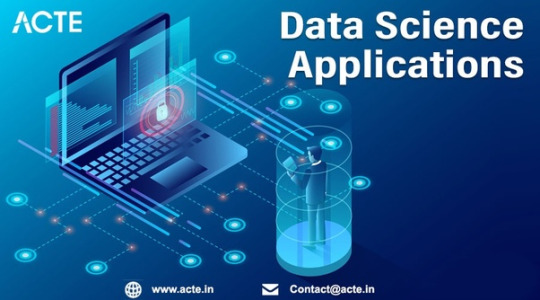
1. Data Science Understanding
In the multidisciplinary subject of data science, information is extracted from data using a variety of techniques, including data mining, analysis, and interpretation. To find trends, forecast outcomes, and inform choices, it integrates aspects of computer science, statistics, mathematics, and domain expertise.
2. Assessing Your Skills and Interests:
It's important to evaluate your abilities and interests before jumping into data science headfirst. Do you have an innate curiosity about data? Do you like doing information analysis and problem-solving? Do you know how to program in languages like R or Python? It also helps to have a solid background in statistics and mathematics. If any of these appeal to you, a career in data science might be worthwhile.
3. Possibilities for Development and Growth:
Data science is highly sought-after in a number of sectors, including technology, e-commerce, healthcare, and finance. The need for qualified data scientists is only going to increase as businesses depend more and more on data to make decisions and maintain their competitive edge. There will be no shortage of employment prospects and room for professional progression in the field if you have the necessary training and experience.
4. Education and Training:
Although a bachelor's degree is a fantastic place to start, success in data science may require additional coursework and training. To expand their expertise and strengthen their resumes, many professionals seek master's degrees or specialized certifications in data science, machine learning, or related subjects. Furthermore, in this ever-changing industry, it's imperative to keep up with the latest technologies and approaches and engage in ongoing learning.
5. Challenges and Considerations:
Although there are many opportunities for job advancement in data science, there are also difficulties. Technical know-how, critical thinking, and effective communication are all necessary in this sector. It can be difficult and time-consuming to work with huge datasets; patience and attention to detail are needed. Furthermore, data scientists have to continuously adapt and pick up new abilities due to the quick speed at which technology is developing in order to remain relevant.
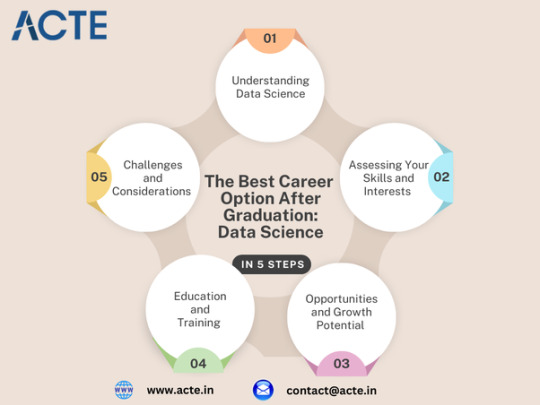
In conclusion, for new graduates, a job in data science may be both fascinating and fulfilling. With the appropriate abilities, a strong desire to learn, and a dedication to your studies, you can set out on a quest to extract meaningful insights from data and inform significant decisions. However, before pursuing a career in data science, it's crucial to carefully assess your interests, abilities, and career goals. You may succeed in this dynamic and always changing sector by maintaining your curiosity, accepting challenges, and consistently improving your skills.
After graduation, data science may be the ideal career choice for you if you're ready to take on a data-driven journey. I appreciate your precious time, and I hope you have an amazing day.
0 notes
Text
An Easy Take on Why Data Science Is the Most Exciting Career
Data science is often considered to be one of the most thrilling and fulfilling professions in today's tech-savvy society. Contemporary decision-making now relies heavily on data science. Here are some reasons why a career in data science can be an exciting path.
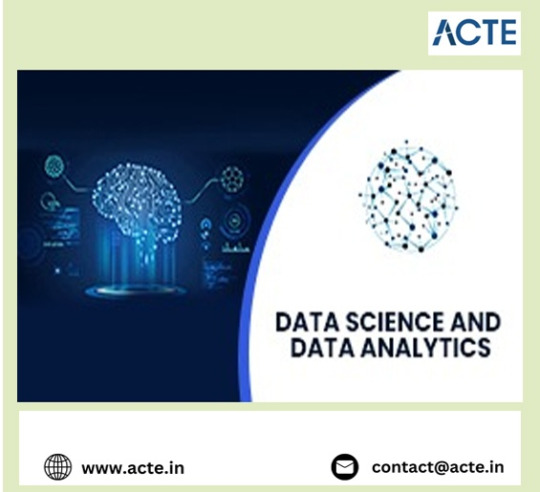
1. "Diverse Opportunities Across Industries"
See why a career in data science may be an exciting journey rather than just a job.
Data science's adaptability is among its most powerful features. There is a demand for data scientists in almost every sector. You can find a home here regardless of your interests in marketing, healthcare, finance, sports, or entertainment. To anticipate disease outbreaks or customize treatment regimens, for instance, data scientists in the healthcare industry examine patient data. They optimize investment methods and identify fraud in the finance industry. The ability to use data skills across industries allows you to pursue your passions and add variety and excitement to your daily routine.
2. High Demand and Attractive Salaries
Data scientists are in high demand, and this trend has continued in the past few years. Businesses want professionals with the ability to decipher complex data and offer insightful advice. Job security and excellent pay are a result of this strong demand. Numerous business reports state that data scientists frequently have some of the highest salaries.
3. Innovation and cutting-edge technology
Data scientists frequently have some of the highest salary positions, according to numerous industry reports. Data science is situated at the nexus of innovation and technology. You use the newest tools and technology, including big data platforms, artificial intelligence, and machine learning, in your work as a data scientist. These technologies are transforming company operations and decision-making; they are more than just trendy terms. Machine learning algorithms have the ability to forecast consumer behavior, for example, and big data analytics can reveal previously undetectable trends.
4. Problem-Solving and Originality
Data science is fundamentally about finding solutions to issues. Analyzing enormous amounts of data to find hidden patterns and insights, data scientists work similarly to detectives. This part of addressing problems is very satisfying. To understand the data and develop creative solutions, one must combine analytical and creative thinking. A data scientist could, for instance, employ predictive analytics to optimize supply chain processes or study social media trends to assist a business in creating a new marketing plan. Data science is a particularly well-rounded and rewarding profession since it combines creative and analytical abilities.
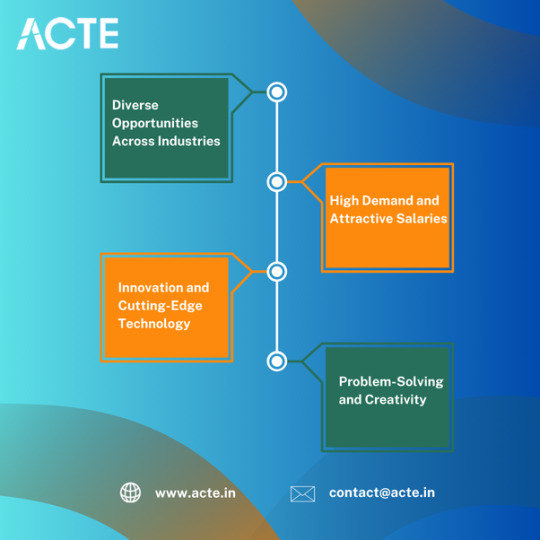
In conclusion, data science is a fascinating field that provides a fulfilling mix of creativity and problem-solving, a variety of options, high demand and wages, and ongoing innovation. This profession has the opportunity to have a big impact on a variety of industries, in addition to providing financial incentives. Data science can be the ideal job for you if you're someone who likes challenges, is passionate about lifelong learning, and wants to work at the forefront of technology. Savor the revolution in data and set off on a thrilling adventure that has the potential to influence our way of life and work in the future.
The possibilities in this thrilling environment are virtually limitless. Thank you for reading.
0 notes
Text
Opening the Door to a Lucrative Career in Data Science
Data scientists are in great demand and may expect hefty salaries in today's data-driven environment. Success in this ever-changing sector can be attained by anyone with the appropriate training and credentials. The Great Learning Academy offers extensive courses designed to provide students with the information and abilities they need for a fulfilling career in data science. One way to access these courses is through certificates.
The Importance of Data Science CertificationA person's competence and proficiency in managing challenging data analytics activities are validated by a data science certification. As they show a dedication to learning and keeping up with business changes, employers frequently search for applicants who possess the necessary credentials.
Comprehensive Curriculum
Python programming, machine learning, data visualization, and big data analytics are just a few of the topics covered in the extensive array of courses that Great Learning Academy provides. Because these courses are created by professionals in the field, students are certain to acquire current, useful information that is applicable to real-world situations.
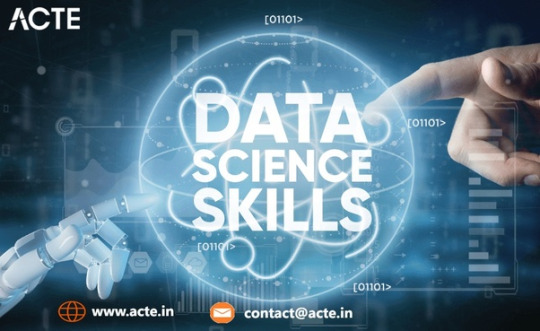
Hands-on Education:
The focus on experiential learning is one of the main features of Great Learning Academy courses. Students can apply theoretical principles to real data sets through projects, case studies, and practical tasks. In addition to strengthening learning, this practical experience offers priceless abilities that employers strongly value.
Flexibility and accessibility
Learners can study at their own pace and convenience thanks to the online platform of Great Learning Academy's flexibility and accessibility. Due to the courses' self-paced format, you can easily manage your studies with other obligations, whether you're a student hoping to launch a career in data science or a working professional trying to upskill.
Employment Prospects and Growth:
A Great Learning Academy credential provides access to a multitude of data science employment options. Those who complete these courses will be prepared to work in a variety of industries, including healthcare, banking, and e-commerce, as data scientists, analysts, machine learning engineers, and business intelligence analysts.
In summary, a Great Learning Academy credential can undoubtedly open doors to a lucrative job in data science. With their extensive curriculum, practical learning opportunities, flexibility, and accessibility, these courses equip students with the knowledge and abilities needed to succeed in the cutthroat industry of data science. Investing in a data science certification from Great Learning Academy can open up a world of options and advance your career, regardless of your level of expertise.
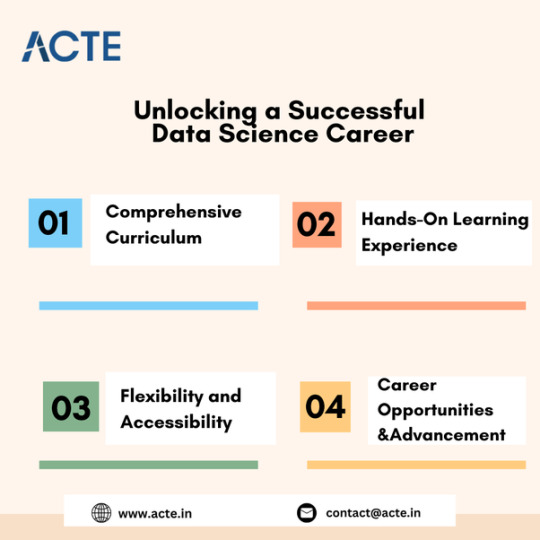
In order to help you maximize your learning process and live life to the fullest, they provide certification programs and opportunities for job placement overseen by professional teachers. These materials are accessible online and offline.
0 notes
Text
The Key to Becoming a Data Scientist in Any MNC
The need for data scientists in multinational corporations (MNCs) is growing in the fast-paced digital age we live in. These experts are the ones that drive the process of sifting through enormous volumes of data and gleaning insightful information to support crucial business choices. The ability to solve problems is the most important skill if you want to work as a data scientist for a multinational corporation.
Across all industries, the function of a data scientist has grown in importance. Data scientists are the wizards that transform unstructured data into insightful knowledge that informs decisions in a variety of industries, including healthcare, banking, e-commerce, and entertainment.
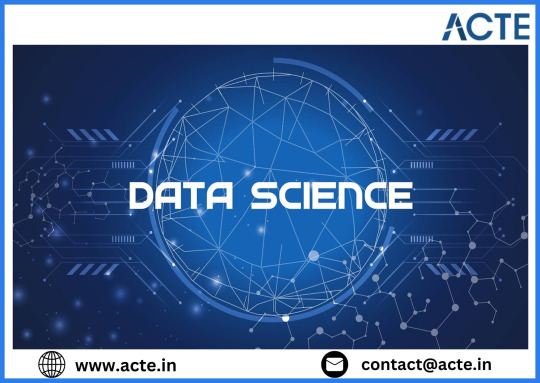
1. Solving Problems: The Foundation of Data Science
Fundamentally, data science is about applying data-driven methods to solve complicated problems. By utilizing data analytics and machine learning approaches, data scientists are able to solve real-world problems, such as supply chain optimization, customer behavior prediction, and marketing strategy improvement.
2. Building a Strong Foundation
A solid foundation in important subjects like mathematics, statistics, and programming is necessary for a data scientist to thrive at problem-solving. The foundation for efficient problem-solving in data science is laid by having a solid understanding of ideas like probability, linear algebra, and algorithm design.
3. Applying Technical Skills
With a strong base, data scientists use their technical expertise to examine and evaluate data, finding trends, patterns, and correlations that provide insights into the underlying issue. Data scientists can extract useful insights from complex datasets by using machine learning algorithms, data manipulation tools, and programming languages like Python and R.
4. Communicating insights effectively
In data science, problem-solving goes beyond analysis and includes efficiently sharing insights with stakeholders. MNCs respect data scientists for their ability to condense intricate analysis into concise, useful recommendations that inform corporate choices. To effectively communicate findings to non-technical audiences, one must possess strong verbal and visual communication abilities.
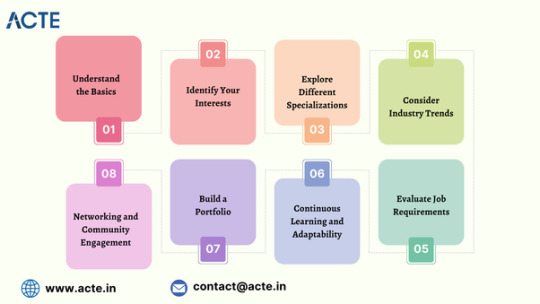
Through data-driven insights, it plays a crucial role in fostering innovation, streamlining procedures, and opening up new prospects. Aspiring data scientists can position themselves for success in any MNC by developing their technical skills and mastering the art of problem-solving. So, adopt problem-solving as your guiding principle on the path to becoming a data scientist at an MNC if you're passionate about solving mysteries hidden within data and having a real impact on business outcomes.
They offer possibilities for job placement supervised by experienced teachers, as well as certification programs that let you live life to the fullest and enhance your learning process. These materials are available online or in person. Considering enrolling in a course and following a methodical approach could be beneficial, provided that the course aligns with your interests.
0 notes
Text
Data Science Career Paths: Beyond "Senior Data Scientist"
In the ever-changing field of data science, advancing in your career requires more than just moving up the ladder—it also requires negotiating a challenging web of duties and obligations. When individuals reach the highest level of a "Senior Data Scientist" employment, they frequently ask themselves, "What's next?" Let's investigate the possible career pathways in data science that go beyond seniority.

1. Lead Data Scientist:
This position involves greater managerial responsibilities in addition to hands-on data analysis and modeling. As the team leader, you will oversee a group of data scientists, providing direction, establishing objectives, and monitoring the caliber and productivity of their work. As you translate complicated insights into workable plans and collaborate with both technical and non-technical teams, communication skills become more and more important.
2. Principal Data Scientist:
You develop into a subject matter expert in this position as you become well-versed in the nuances of data science technology and processes. Principal data scientists frequently drive innovation inside their companies by seeing chances to use cutting-edge methods to address challenging business issues.
3. Data Science Manager/Director:
Taking on a managerial or directorial role, you will be in charge of whole data science divisions or departments. In addition to managing individual projects, you are also responsible for team management, budgetary allocation, and strategic planning. Linking data science projects to overarching organizational objectives makes departmental collaboration essential. Your ability to lead and make sound business decisions are crucial as you promote data-driven decision-making throughout the organization.
4. Chief Analytics Officer/Data Scientist Chief:
The Chief Data Scientist, sometimes known as the Chief Analytics Officer, is at the top of the data science hierarchy. You have considerable control over the company's data strategy and vision in this executive position. Working directly with C-suite executives, you provide advice on strategic business choices based on insights gleaned from data.
5. Entrepreneur/Consultant:
Some seasoned data scientists decide to use their knowledge to launch their own businesses or provide consulting services. You can freely pursue projects that are in line with your interests and ideals as an entrepreneur or consultant. This route gives independence and the chance to have a direct impact on a variety of industries, whether it's by creating cutting-edge data products, giving organizations strategic advice, or delivering specialized training and workshops.

The path in data science is not completed at "Senior Data Scientist"; rather, it is an ongoing development with a variety of chances for advancement and influence. The opportunities are as wide and varied as the data itself, whether you want to pursue entrepreneurial enterprises, innovate inside your company, or move up the corporate ladder to senior positions. Remain inquisitive, never stop learning, and eagerly and resolutely embrace the dynamic field of data science. Awaiting you is your upcoming chapter!
0 notes
Text
How to Become a Data Scientist as a Statistician: A Useful Guide
As both disciplines focus on extracting insights from data, statisticians and data scientists often work in similar environments in today's data-driven world. But if statisticians choose to further their understanding and pursue careers in data science, there are specific steps they must take.

1. Understanding the Data Science Landscape: Before embarking on a career path to become a data scientist, it is imperative to appreciate the breadth of the field. Data science encompasses several different skills, including programming, machine learning, data visualization, and domain expertise. Take some time to familiarize yourself with these aspects of data science in order to be ready for your transfer.
2. Develop your programming abilities: Data scientists employ Python and R for data analysis and modeling, whereas statisticians are skilled with statistical applications like SAS or SPSS. Take the time to become familiar with these languages and with widely used frameworks and libraries, like as TensorFlow, NumPy, Pandas, and Scikit-Learn. An excellent way to learn programming is by using online tutorials, classes, and coding platforms.
3.Take a deep dive into data wrangling: Before analyzing data, data scientists must spend a considerable amount of time cleaning and preparing it because it rarely comes in a neat, structured manner. Use R's dplyr or Python's Pandas to become familiar with data wrangling techniques. Acquire knowledge about handling missing values, merging datasets, and performing data transformations to get them ready for analysis.
4. Master Machine Learning:
Machine learning is a cornerstone of data science, allowing practitioners to build predictive models and uncover patterns in data. As a statistician, you may already have a strong foundation in statistical modeling techniques, which provides a solid starting point for learning machine learning algorithms. Explore algorithms such as linear regression, logistic regression, decision trees, and neural networks, and gain hands-on experience by implementing them in Python or R using libraries like scikit-learn and TensorFlow.
5. Gain expertise in data visualization:
In data science, it's critical to communicate insights effectively, and data visualization is a key tool for informing stakeholders of discoveries. Learn how to use programs like ggplot2 in R or Matplotlib, Seaborn, and Plotly in Python to produce visually beautiful and informative visualizations. Try out various plot and chart styles to see what works best for conveying data trends and patterns.

Making the switch from statistician to data scientist is a difficult but doable process. Statisticians can successfully enter the field of data science by learning programming, becoming proficient in machine learning techniques, and being skilled in data wrangling and visualization. Never lose your curiosity, never stop learning, and always welcome the chances for development and discovery that come your way. A fulfilling career as a data scientist can be yours with commitment and determination. You will use your statistical knowledge to draw important conclusions from data.
Skilled educators can improve your learning. They offer possibilities for job placement supervised by experienced teachers, as well as certification programs that let you live life to the fullest and enhance your learning process. These materials are available online or in person.
0 notes
Text
An Analyst's or Data Scientist's Handbook
Choosing career as a data scientist or data analyst might be perfect for you! In this blog post, we'll walk you through a simple roadmap to kickstart your journey towards becoming a data expert.

Step 1: Understand the Basics
Before diving into the world of data science, it's crucial to build a solid foundation of knowledge. Start by familiarizing yourself with fundamental concepts such as:
Statistics: Learn about probability, distributions, hypothesis testing, and regression analysis.
Programming: Acquire proficiency in languages like Python or R, which are widely used in data analysis.
Data Manipulation: Master tools like Pandas and NumPy for data manipulation and cleaning.
Step 2: Gain Practical Experience
Theory is essential, but practical experience is where the real learning happens.
Work on Personal Projects: Analyze datasets that interest you or solve real-world problems using data.
Participate in Competitions: Platforms like Kaggle offer data science competitions where you can test your skills and learn from others.
Contribute to Open Source: Join open-source projects related to data science
Step 3: Specialize
Data science is a broad field, and there are various specializations you can explore based on your interests and career goals.
Machine Learning: Dive deeper into algorithms and techniques for predictive modeling and pattern recognition.
Deep Learning: Explore neural networks and their applications in solving complex problems
Data Visualization: Learn to communicate insights effectively through charts, graphs, interactive dashboards.
Step 4: Build a Strong Portfolio
A portfolio showcases your skills and expertise to potential employers. Include your projects, code samples, and any relevant certifications. Make sure your portfolio is well organized and highlights your problem-solving abilities and creativity.
Step 5: Stay Updated
The field of data science is constantly evolving, with new techniques, tools, and technologies emerging regularly.
Reading Blogs and Books: Follow data science blogs, read books, and subscribe to relevant publications to stay informed about the latest trends and developments.
Taking Online Courses: Enroll in online courses or attend workshops to learn about new tools and techniques.
Networking: Join data science communities, attend conferences, and connect with professionals in the field to exchange ideas and stay abreast of industry developments.
Step 6: Land Your Dream Job
Once you feel confident in your skills and experience, it's time to start applying for jobs. Tailor your resume and cover letter to highlight your relevant experience and skills. Prepare for interviews by practicing coding exercises, discussing your projects, and demonstrating your problem-solving abilities.
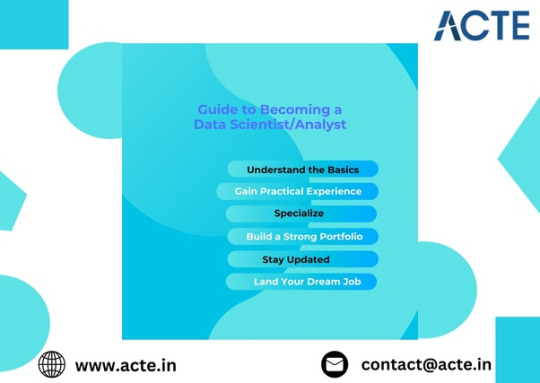
Becoming a data scientist or data analyst is an exciting journey that requires dedication, continuous learning, and a passion for uncovering insights from data. Remember to stay curious, keep learning, and embrace challenges along the way. Good luck!
If you want to learn more about data science, I highly recommend a data science course in Pune because they offer certifications and job placement opportunities. Experienced teachers can help you learn better.
0 notes
Text
Breaking the Code of Data Science: 5 Crucial Benefits Detailed
In the digital age, data science has grown to be a powerful tool that is upending industries and altering our decision-making processes. But what is data science exactly, and why is it important? Let's investigate data science and discover its five primary benefits.Let's explore data science and learn about its five main advantages.

1. Well-Informed Decision-Making: Data science analyzes enormous volumes of data to help firms make well-informed judgments. Data-driven insights offer a strong basis for strategic planning, whether it is for forecasting consumer behavior or spotting market trends. Businesses can reduce risks and maximize opportunities by anticipating future outcomes and customizing their plans by utilizing historical data and advanced analytics approaches.
2. Increased Productivity and Efficiency: Data science optimizes processes and automates repetitive work to increase productivity and efficiency in a variety of fields. Predictive maintenance algorithms have the capability to foresee equipment malfunctions in the manufacturing sector, hence averting expensive downtime. Data analytics can streamline the workflow in the healthcare industry by optimizing patient scheduling and resource allocation. Organizations may focus on value-adding tasks and get rid of inefficiencies by utilizing data, which will boost growth.
The core of personalised experiences: ranging from targeted marketing efforts to recommendation systems, is data science. Companies can provide individualized products and services that meet the needs of each customer by examining the behavior and preferences of the user base. Data-driven customisation improves customer pleasure and builds brand loyalty, whether it's suggested products on e-commerce platforms or individualized content recommendations on streaming services.
4. Fraud detection and risk mitigation: The danger of fraud and security breaches is very real in today's more networked environment. Machine learning algorithms can identify possible hazards in real-time and enable intervention, whether it is in the financial institution sector or in cybersecurity, by recognizing fraudulent transactions or suspicious behaviors. Organizations may preserve trust by protecting their assets and thwarting fraudulent actions through the utilization of predictive analytics and anomaly detection approaches.
5. Innovation and Competitive Advantage: Data science stimulates innovation through experimentation and the discovery of hidden insights. Businesses can find unmet requirements and create unique solutions that set them apart from rivals by examining market trends and consumer behavior. Data-driven innovation creates limitless opportunities for growth and expansion, whether it's through the development of new goods, the optimization of current processes, or the exploration of new markets.

To sum up, data science is a game-changer with numerous applications in a variety of industries. Data science has a wide-ranging and significant impact on everything from risk mitigation and tailored experiences to better decision-making and increased productivity.Thus, adopting data science is the key to opening the door to a better, more data-driven future, regardless of your role in the company—business leader, data scientist, or just interested in learning more about data.
0 notes
Text
Mastering Data Science: Your All-Inclusive Guide
The discipline of data science is dynamic and ever-expanding, offering tremendous opportunities for individuals interested in delving into the realm of analysis, deduction, and forecasting.Combining programming, statistics, and subject expertise, data science is a fast expanding field that uses data to glean knowledge and insights. Gaining expertise in data science can lead to a multitude of employment prospects, since there is an increasing need for data-driven decision-making in various industries.
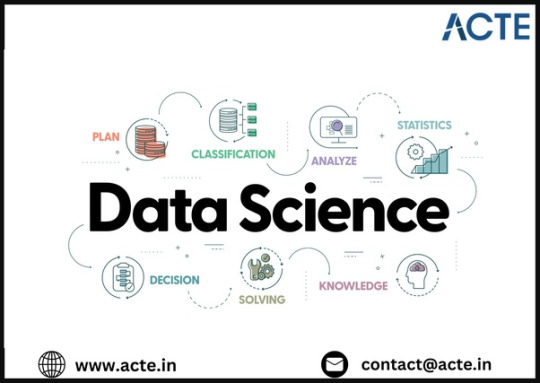
Gaining knowledge about data science
Fundamentally, data science is about using several processes like data gathering, cleansing, analysis, and interpretation to extract information and insights from data. To make sense of complicated datasets, it integrates components of computer science, statistics, mathematics, and domain experience.
Get Started
"Learn the Basics": To begin, acquaint yourself with the principles of data science. Recognize fundamental ideas including variables, data types, and basic statistical measurements like mean, median, and mode
Select a Programming Language: R and Python are two widely used languages in data science. Select one and master it. Emphasize on learning how to use libraries like Pandas, NumPy, and Matplotlib (for Python) or (for R) to manipulate data, conduct analyses, and produce visualizations.
Examine Data Analysis Methods: Explore the structure and patterns found in datasets by delving into exploratory data analysis (EDA) methodologies. Acquire the knowledge to rectify sloppy data, manage absent values, and prepare data for examination.
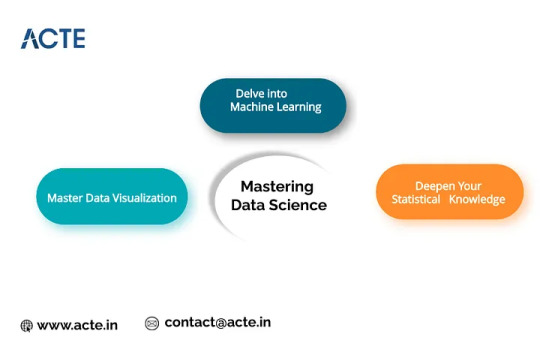
Developing Your Capabilities
Examine Machine Learning: One of the most important aspects of data science is machine learning. Studying supervised and unsupervised learning methods should be your first step. Learn how to train models, assess their output, and formulate predictions.
Master Data Visualization: Effective insight communication depends on data visualization. To produce eye-catching graphs, charts, and dashboards that effectively communicate your findings, investigate visualization tools and libraries.
Develop a deeper understanding of statistical concepts: Learn more about probability distributions, regression analysis, and hypothesis testing.
Application and Specialization
Select a SpecializationThere are many subfields within the large area of data science, including time series analysis, computer vision, and natural language processing. Determine your interests and strong points before focusing on a certain topic that corresponds with your desired professional path.
Work on Real-World Projects: Use your abilities on projects and datasets from the real world. Compiling a portfolio of work not only helps you demonstrate your skills to prospective employers, but it also helps you reinforce your comprehension.
Have a curious mind and never stop learning: New methods, instruments, and approaches are continually being developed in the field of data science. Continue to learn through books, online courses, and community involvement; be inquisitive and stay up of current events.
0 notes
Text
Deconstructing Data Roles: Scientist, Analyst, and Researcher
Professionals with the ability to infer inferences from data are in great demand in the big data era. However, technical terms employed in data-related fields might lead to miscommunications.Using knowledge from Pune's Best DataScience Course, let's investigate the primary reasons behind people's fascination with data science.
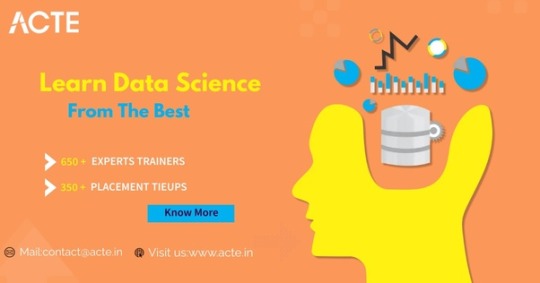
Data Researcher
An explorer in the vast realm of data is what a researcher is like. Their primary duty is to collect and organize data from various sources. Think of them as information gatherers who look through datasets, databases, and other sources to find relevant content.
Primary Responsibility
1. Data Collection: They look through a range of sources, such as websites, surveys, research papers, and databases, to obtain raw data.
2. Data Cleaning: Raw data, which is often chaotic, must be cleaned and structured before analysis can begin. Data researchers are in charge of this initial cleanup.
3. Data exploration: Prior to diving into in-depth analysis, they conduct preliminary research to understand the structure, patterns, and potential insights within the data.
4. Documentation: Keeping thorough records of the procedures and data sources
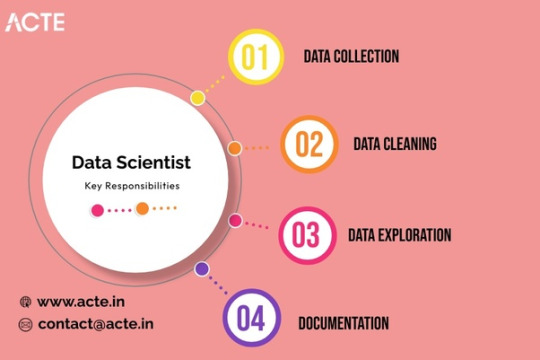
Data Analyst:
Once the data has been gathered and cleaned up, the data analyst ought to take over. Data analysts go through data to identify important trends, patterns, and insights, much like detectives do.
Because they provide certificates and job placement options, I heartily recommend the Datascience Online Training if you're interested in learning more about data science. These services are available both offline and online.
Primary Responsibility
1. Data Interpretation: Data analysts use statistical techniques and visualization tools to identify trends and glean insights from data.
2. Report Generation: Often with the aid of tables, graphs, and charts, they compile their findings into concise and understandable reports and dashboards.
3. Visualization: When complicated information is presented visually, stakeholders can understand it more easily. Data analysts are adept at visualizing data using tools like Tableau, Power BI, and Python libraries like Matplotlib and Seaborn.
4. Data-oriented Suggestions: Based on their research, data analysts make recommendations.
Data Scientist:
The wizards of the data realm are data scientists. They can tackle complex problems because they have a special combination of subject knowledge, statistical experience, and programming skills.
Primary Responsibility
1. Advanced Analytics: Data scientists use state-of-the-art statistical techniques and machine learning algorithms to extract patterns and forecasts from data.
2. Model Development: They build and enhance predictive models to solve specific business problems such as demand forecasting or customer churn prediction.
3. Algorithm Implementation: Data scientists write code to implement models and algorithms using Python or R, among other computer languages.
4. Cross-functional Collaboration: Data scientists work closely with stakeholders from all departments to understand business objectives and align data-driven solutions with organizational goals.
0 notes
Text
Unveiling the Magic: The Simple Guide to Data Processing Operations
Data is the lifeblood of the modern technical landscape in the digital age. However, how are these unprocessed data turned into insightful knowledge? Let us introduce data processing, the technical magic that transforms data into useful information behind the scenes. Let's take a tour of the essential functions of data processing to put the mystery behind it.

1. Data Collection
What is data collection?
Assume you are assembling the components for a recipe. Gathering data is similar to locating these components. It entails gathering raw data from a variety of sources, including surveys, sensors, and good ol' manual data input.
As an illustration, let's say you run a survey to find out what flavors people prefer in ice cream.
2. Data Input
What does the data input mean?
After obtaining your ingredients, you must add them to the pot. Entering the gathered data into a database or system is known as data input. Making sure the data is in a format the computer can comprehend and process is the goal of this phase.
As an illustration, you input the survey results into a database or spreadsheet.
3. Data Processing
What is data processing?
It's time to stir now that your ingredients are in the pot. The process of data processing entails modifying and converting unprocessed data into a more significant format. To make the data usable, this can involve performing calculations, sorting, filtering, and other processes.
As an illustration, figure out what proportion of respondents like each flavor of ice cream.
4. Data Storage
What is data storage?
Consider data storage as storing your tasty soup in the refrigerator for a later time. Data requires a place to live after processing. For simple retrieval, it can be kept in databases, data warehouses, or other storage systems.
As an illustration, store the survey findings in a database for later use.
5. Data Output
What is the data output?
The soup needs to be served now! Presenting the processed information in a manner that is legible to humans is known as data output. This could take the form of reports, graphs, charts, or any other format that helps to visualize the findings.
As an illustration, consider making a chart to show how ice cream preferences are distributed visually.
6. Data Interpretation
What is data interpretation?
Understanding the meaning underneath the processed data is the key to data interpretation, much like enjoying the flavors of your soup. It entails making judgments, coming to conclusions, and gleaning practical insights.
For instance, drawing the conclusion from the survey data that the most popular ice cream flavor is chocolate.
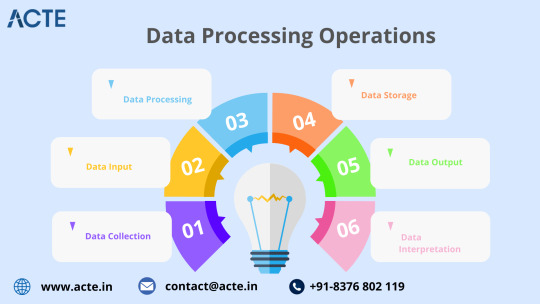
The act of turning raw components into a delicious meal of insights is called data processing. Knowing these core processes is essential to turning data into insightful knowledge, whether you're calculating survey results or examining company patterns. So embrace the data kitchen, don your chef's hat, and get processing!
If you want to learn more about data science, I highly recommend a data science course in Hyderabad because they offer certifications and job placement opportunities. Experienced teachers can help you learn better. You can find these services both online and offline. Take things step by step and consider enrolling in a course if you’re interested.
Thank you for spending your valuable time, and have a great day.
0 notes
Text
Demystifying Databases and Data Science: Navigating the Data Landscape
Words like "database" and "data science" are commonly used interchangeably in the rapidly developing digital world, which leads to confusion. To clarify these ideas' distinctions, let's put them into layman's terms.
Knowing Databases
A database: what is it?
A database is fundamentally similar to a digital warehouse, where we store and arrange data. Think of it as your data's organized library. Anything, from consumer orders in an online store to your cat's favorite snacks, might be included in this data.
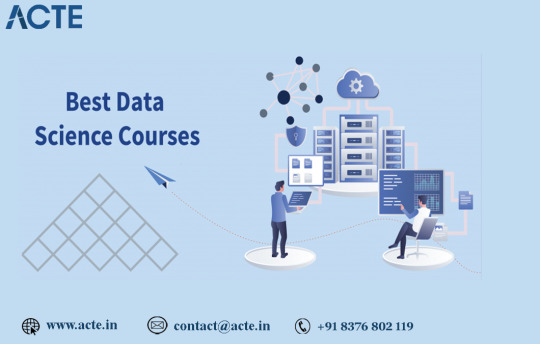
Key Characteristics:
1. Structured Storage: Tables, rows, and columns are typically used in databases to arrange data in an organized fashion.
2. Effective Retrieval: They make it possible to quickly and effectively retrieve particular information.
3. ACID Properties: By preserving the integrity of data transactions, databases provide reliability through the ACID qualities (atomicity, consistency, isolation, and durability).
Popular types of databases:
Tables are used in relational databases (such as MySQL and PostgreSQL) to organize data according to predetermined relationships.
NoSQL databases, such as Cassandra and MongoDB, provide flexibility while managing data that is semi-structured or unstructured.
Getting Started with Data Science
Data science: what is it?
The technique of deriving significant insights from enormous volumes of data is known as data science. It's the art and science of spotting patterns, forming hypotheses, and finding nuggets of wisdom hidden in the mountains of data.
Important attributes:
1. Data exploration: After analyzing the data, data scientists look for trends, patterns, and anomalies.
2. Statistical Analysis: To draw insightful inferences from the data, they apply statistical techniques.
3. Machine Learning: Machine learning, in which algorithms identify patterns in data to provide forecasts or judgments, is a common component of data science.
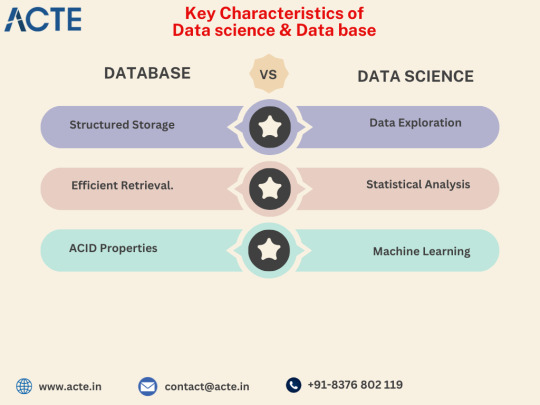
Typical Data Science Tasks:
Data cleaning is the process of preparing data by eliminating errors and inconsistencies.
Finding patterns and links using statistical summaries and visualizations is known as exploratory data analysis, or EDA.
Building and honing models to generate forecasts or categorizations is known as machine learning modeling.
Filling the void
Data science and databases may appear separate; however, they are related. The basis for organizing and preserving the data that data scientists use for analysis is provided by databases. Consider data science as the internal detective work in databases, which act as the warehouse.
In the big picture, databases and data science are essentially collaborators. The infrastructure is provided by databases, and data science turns unprocessed data into useful insights. In our data-driven world, both creating a database to store information and applying data science approaches to extract value are essential. Accept the collaboration and start your data adventures.
If you want to learn more about data science, I highly recommend a data science course in Hyderabad because they offer certifications and job placement opportunities. Experienced teachers can help you learn better. You can find these services both online and offline. Take things step by step and consider enrolling in a course if you’re interested.
Thank you for spending your valuable time, and have a great day.
0 notes
Text
Riding the Wave: The Sudden Boom and Amazing Future of Data Science
Hello to all of you. It's easy to understand why the subject of data science has experienced an unparalleled boom in recent years. The sheer amount of data generated every day has increased rapidly as our world grows more digital. Data science has become the data avalanche's super hero, able to draw insightful conclusions from the massive amount of available data. Let's investigate the causes of the recent upsurge in data science and learn more about the exciting future this dynamic discipline has in store.
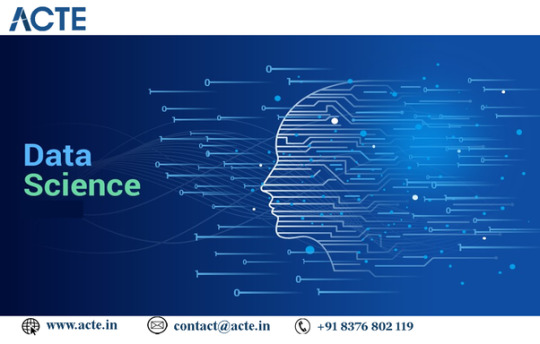
1. The Data Explosion:
Every click, swipe, and transaction in the information age we live in leaves a digital trail. The amount of data generated has increased dramatically with the introduction of smartphones, Internet of Things devices, and online platforms. A wealth of information that is just waiting to be discovered is being produced by the data explosion that is being contributed to by organizations, governments, and private citizens.
2. Technology Advancements:
The development of data science has been made possible by quick improvements in technology, especially in the areas of processing power and storage. Large datasets may now be processed at speeds never before possible by sophisticated machine learning models and powerful algorithms, allowing data scientists to find correlations, patterns, and trends that were previously obscured by data noise.
3. Business Transformation:
Companies are starting to see how much data-driven decision-making can do. For businesses trying to remain ahead of the competition, data science has become a game-changer, whether it's through supply chain optimization, customer experience improvement, or trend prediction. The capacity to convert unprocessed data into meaningful insights has emerged as a critical component of operational effectiveness and strategic planning. Selecting the top data science online course is essential to gaining the knowledge and skills required for a prosperous career in the ever-changing field of data science.
4. Applications Across Industries:
Applications of data science are not limited to any one industry; they are found in many other fields. Data science is transforming how problems are tackled and solved in a variety of industries, including healthcare, banking, agriculture, and entertainment.
5. Employment Prospects and Demand for Skills:
The need for knowledgeable individuals who can successfully navigate the complicated field of data science is growing, along with the need for insights derived from data. A wide range of people are drawn to upskill and seek careers in the fascinating field of data science due to the increase in job prospects in this field. Businesses are actively looking for engineers, analysts, and data scientists to assist them in maximizing the potential of their data.
The Incredible Prospects of Data Science:
The field of data science has much more promise for the future. The following are some crucial elements that will make data science's future genuinely amazing:
1. AI Integration: As AI develops further, data science will make greater use of AI capabilities to improve predictive analytics, automate decision-making procedures, and open up new opportunities in fields like computer vision and natural language processing.
2. Ethical Aspects: There is a huge deal of responsibility that goes along with power. Data privacy, prejudice, and transparency are ethical issues that will become increasingly important as data science gets more widely used. Data science in the future will handle sensitive data with consideration and responsibility.
3. Interdisciplinary Collaboration: Conventional discipline distinctions are becoming less distinct. Collaboration between data scientists, subject matter experts, and stakeholders from other fields will grow in the field of data science in the future. Multidisciplinary approaches will produce more comprehensive and significant results.
4. Constant Innovation: Data science is a dynamic discipline full of ongoing discoveries and advancements. More advanced algorithms, cutting-edge methods, and inventive uses of data science across industries are all expected in the future. For those working in the field, staying up-to-date with these developments will be essential.
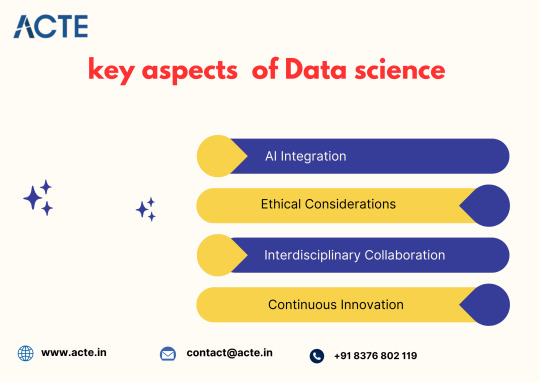
A growing understanding of data science's significance across businesses, combined with advances in technology and greater data collection, has created a perfect storm for the unexpected growth in data science. Data science's incredible future has the potential to completely change the way we work, live, and make decisions. The opportunities are endless as we ride this data revolution, and the trip will undoubtedly be nothing short of amazing.
If you want to learn more about data science, I highly recommend a data science course in Hyderabad because they offer certifications and job placement opportunities. Experienced teachers can help you learn better. You can find these services both online and offline. Take things step by step and consider enrolling in a course if you’re interested.
Thank you for spending your valuable time, and have a great day.
0 notes